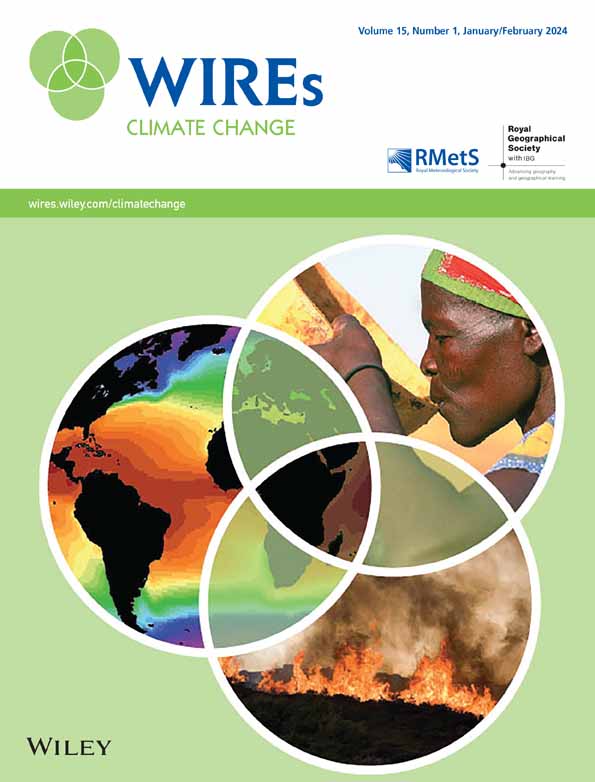分配正义和全球排放预算
IF 10.3
1区 环境科学与生态学
Q1 ENVIRONMENTAL STUDIES
引用次数: 0
摘要
为了不明显超过1.5°C和2°C的最大变暖目标,我们必须保持在固定的排放预算内。如何在这样的预算范围内公平分配排放权利,可能是所有气候正义中讨论得最激烈的问题。在我们的评论中,我们讨论了道德和政治哲学中关于如何解决这个问题的最突出的建议,并特别强调了过去十年来的学术贡献。我们仔细研究了支持和反对排放平均主义、排放充分主义和排放祖父论的论点,以及围绕它们的辩论。这些问题包括如何处理不合规问题,如何在生产者和消费者之间分配排放,如何最好地解释陆地碳汇,以及是否应该从父母的排放预算中减去孩子的排放。从正义的角度来看,我们不仅要采取行动应对气候变化,而且要采取何种行动。这篇综述旨在阐明我们对气候变化的反应可能是公正的或不公正的主要方式之一。本文章由计算机程序翻译,如有差异,请以英文原文为准。
Distributive justice and the global emissions budget
In order not to significantly overshoot maximum levels of warming like the 1.5 and 2°C target we must stay within a fixed emissions budget. How to fairly distribute the entitlements to emit within such a budget is perhaps the most intensely discussed question in all of climate justice. In our review we discuss the most prominent proposals in moral and political philosophy on how to solve this question and put a special emphasis on scholarly contributions from the last decade. We canvass the arguments for and against emissions egalitarianism, emissions sufficientarianism, and emissions grandfathering as well as the debates surrounding them. These are how to deal with non‐compliance, how to split emissions between producers and consumers, how to best account for terrestrial carbon sinks, and whether emissions from having children should be subtracted from parents' emissions budgets. From the viewpoint of justice, it matters not only that we act against climate change but also how we do so. This review aims to elucidate one of the major ways in which our reaction to climate change could be just or unjust.
求助全文
通过发布文献求助,成功后即可免费获取论文全文。
去求助
来源期刊

Wiley Interdisciplinary Reviews: Climate Change
METEOROLOGY & ATMOSPHERIC SCIENCES-
CiteScore
20.00
自引率
2.20%
发文量
58
审稿时长
>12 weeks
期刊介绍:
WIREs Climate Change serves as a distinctive platform for delving into current and emerging knowledge across various disciplines contributing to the understanding of climate change. This includes environmental history, humanities, physical and life sciences, social sciences, engineering, and economics. Developed in association with the Royal Meteorological Society and the Royal Geographical Society (with IBG) in the UK, this publication acts as an encyclopedic reference for climate change scholarship and research, offering a forum to explore diverse perspectives on how climate change is comprehended, analyzed, and contested globally.
 求助内容:
求助内容: 应助结果提醒方式:
应助结果提醒方式:


